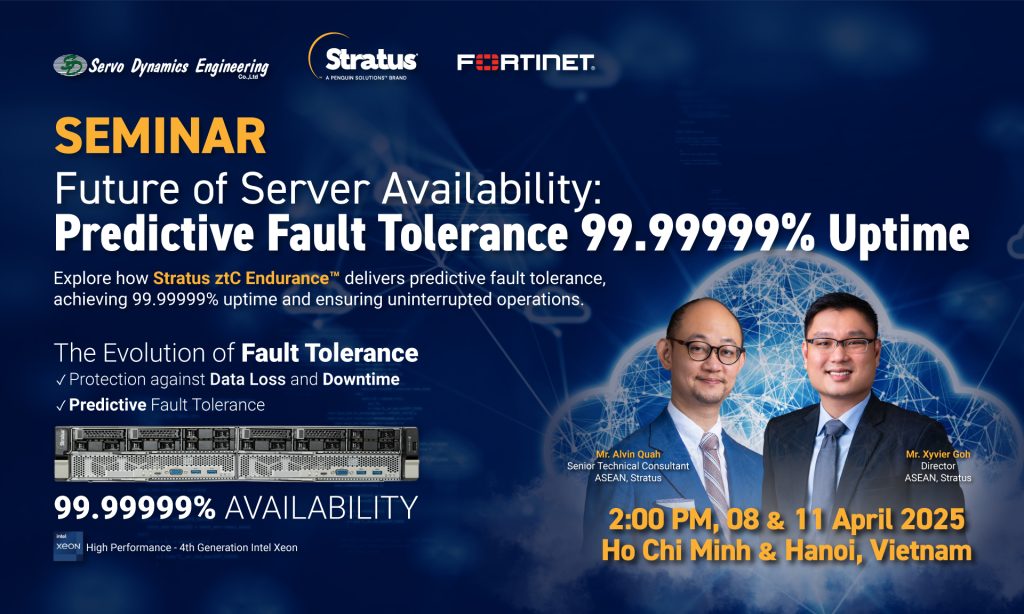Industrial Automation
Sensors
Industrial Equipment
Motors & Motion Control

CTOs, IT infrastructure leads and enterprise architects looking to minimize downtime and enhance the resilience of their operations.
Traditional high availability equals costly application downtime. In today’s world of instant gratification, predictive fault tolerance is paramount to your enterprise’s success.
Join Servo Dynamics and Stratus to explore how ztC Endurance™ ensures seamless, high-availability operations in IT operations.
Discover how ztC Endurance™ achieves predictive fault tolerance.
Learn from organizations that achieved up to 100% uptime.
Participate in a live demo session to see ztC Endurance™ in action.
Confidently run complex software stacks with Stratus ztC Endurance’s breakthrough 99.99999% availability
The Stratus ztC Endurance™ platform enables IT and OT to run critical applications without downtime or data loss, using intelligent, predictive fault tolerance.
Using ztC Endurance enables digital transformation of computing infrastructure to modernize operations and deploy advanced software stacks, ensuring application availability and data integrity at the edge or data center. The platform combines built-in fault tolerance, proactive health monitoring, and serviceability by OT or IT, along with meeting cybersecurity requirements.
Affordable performance for stable, fixed standalone applications in remote offices, branch offices, or shop floor locations.

Versatility and flexibility for rapidly growing or evolving applications in regional offices, remote plants, or regional data centers.

High performance for high volume data- or transaction-intensive applications in large remote plants or corporate data centers.
